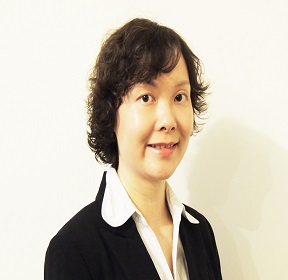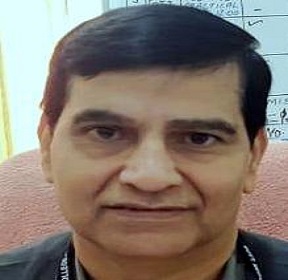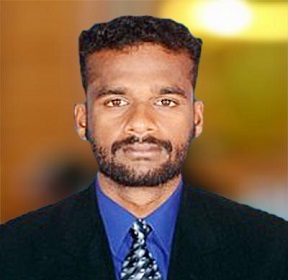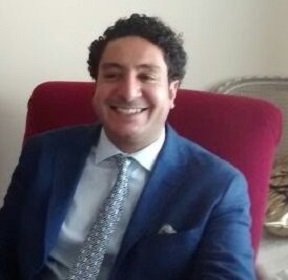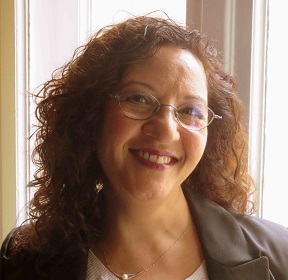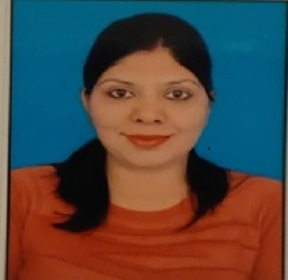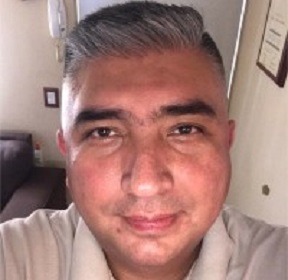Keynote Forum
Le Thi Nguyet Minh
National University SingaporeTitle: Targeted delivery of therapeutic RNAs using antibody conjugated extracellular vesicles
Abstract:
RNA-based therapeutics have become one of the most promising new classes of medicine in recent years. However, the delivery of RNA drugs is still challenging. We have shown that red blood cell extracellular vesicles (RBCEVs) are the ideal carriers for therapeutic RNAs because RNAs can be loaded readily into the EVs and delivered to cancer cells at high efficiency (Usman et al, Nature Communications, 2018). RBCEVs are nontoxic, nonimmunogenic and devoid of DNA hence there is no risk of horizontal gene transfer. RBCEVs can be produced in a large quantity from donated blood. Moreover, RBCEVs can undergo many cycles of freezing and thawing without affecting their integrity and efficacy, suggesting that they can be developed into stable pharmaceutical products. Here, we describe new modifications to the RBCEV platform to establish targeted delivery to specific tumor types. RBCEVs are covalently conjugated with peptides or nanobodies targeting EGFR, facilitating accumulation of RBCEVs in EGFR-positive cancer cells including lung cancer and breast cancer. EGFR-targeting RBCEVs deliver therapeutic molecules including siRNAs, ASOs and mRNAs specifically to tumor cells for cancer treatments with increased efficacy and reduced side effects. We also use RBCEVs coated with CXCR4-targeting peptide or CD33-targeting monoclonal antibodies to deliver therapeutic peptides and ASOs to leukemia cells specifically. Hence, the targeted RBCEVs platform can be customized for different cancer types to enhance the specificity and efficiency of RNA therapy.
Biography:
Le Thi Nguyet Minh graduated from the National University of Singapore (NUS) with a Bachelor’s degree in Life Sciences and a Ph.D. degree in Computational and Systems Biology, under the guidance of Prof. Bing Lim and Prof. Harvey Lodish. She was trained as a postdoctoral fellow with Prof. Judy Lieberman at Boston Children’s Hospital for 5 years and worked at City University of Hong Kong (CityU) as an Assistant Professor for 4 years before returning to NUS. Dr Le is well recognised for her contributions to the field of microRNAs, extracellular vesicles and cancer biology. She was the first to identify the function of miR-125b in regulating the p53 pathway and demonstrate its important roles in development and in cancer. Her group has recently developed a strategy to harness extracellular vesicles from red blood cells for delivery of RNA drugs. This drug delivery platform is the foundation for her start-up company, Carmine Therapeutics, which is recognized among the top 15 biotech company by Fierce in 2020
Anil Batta
Govt. Medical College IndiaTitle: Pharmacy’s role in a modern health continuum
Abstract:
Developing a health care system that puts people at the center of their own care and uses all available resources as effectively as possible has become a consistent goal of most governments. Achieving this goal requires different health professionals to work in collaboration with each other to meet the health needs of patients. In order for that to happen, governments must work with all key professional groups to use all available resources of the system most effectively and, importantly, pharmacists must be recognized as the professional that coordinates drug therapy management. In addition, governments must put in place policies and a regulatory and funding environment that facilitates team-based care and acknowledges and supports the professional competencies of all health professions. These basic points were made in a White Paper prepared for the Alberta Minister of Health. This article, derived from that paper, was prepared to help pharmacists and other pharmacy organizations understand the critical steps needed for individuals and the health system to fully experience and benefit from pharmacists’ skills and services.
Biography:
Prof. Dr. Anil Batta is presently professor & Head with senior consultant in Govt. Medical College, Amritsar. He did his M.B.B.S. and M.D. in Medical Biochemistry from Govt. Medical College, Patiala in 1984 and 1991, respectively. His research interest is mainly in clinical application especially cancer and drug de-addiction. He has supervised more than 25 M.D., M.Sc. and Doctorate researches and published more than 130 international research papers. He is the chief editor of America’s Journal of Biochemistry. He is also working as advisor to the editorial board of International Journal of Biological and Medical Research. He has been deputed member Editorial Board of numerous International & National Medical Journals of Biochemistry. He has also been attached as technical advisor to various national and international conferences in Biochemistry. He has been attached as hi-tech endocrinal, genetics and automated labs of Baba Farid Univ. of Health Sciences, Faridkot. He has chaired various sessions in the Biochemistry meets. He has been designated as member Editorial Board of various in US and other European Courtiers. He is also involved in various research projects at Govt. Medical, Amritsar. He has done superspecialisation in Drug-de-addiction from PGIMER, Chandigarh.
Francois-xavier Frapaise
FranceTitle: The end of Phase 3 clinical trials in biosimilars development
Abstract:
Most patients still have limited or no access to life-changing therapeutic proteins in the treatment of their cancer or autoimmune disorders. The development of biosimilars is a complex and expensive undertaking, the more as what is called “reference compound” is often a moving target, these compounds manufacturing process experiencing multiple changes, some being significant. The current clinical development model of biosimilars is expensive, as it is based on large, comparative phase 3 trials that in most cases do not provide meaningful information on the clinical equivalence (efficacy/safety) of biosimilars and reference compounds. At the same time, the development of state-of-the-art orthogonal analytical methods has enabled a better understanding of the structure and structure-function relationship of biotherapeutics. Hence, we suggest here that a solid chemistry, manufacturing, and controls (CMC) package and meaningful phase 1 studies will leave limited uncertainty on biosimilarity, which can be addressed-if needed-by post-approval, long-term follow-up studies (post-approval studies, pharmacovigilance, real world evidence data and registries, and possibly new post-approval models to be developed). We believe that this new approach may be more appropriate than 600- to 1000-patient, phase 3 trials in assessing biosimilarity and therapeutic equivalence, under the condition that the administered biosimilar given to individual patients can be clearly identified. Obviously, there will probably never be a "one size fits all" development model, and an individualized, risk-based approach to biosimilar development will always have to be considered and discussed early with regulators.
Biography:
Francois-Xavier Frapaise, M.D has over 35 years of international drug development, strategic planning and marketing experience at major pharmaceutical companies including Sanofi, Bayer, Boehringer, Merck and Abbott; he has hold multiple C-level positions (CSO,CMO,CEO) in different Pharmacos in the US and Europe. Until recently ,he was heading Clinical Development, Medical Affairs and Pharmacovigilance at Merck KGaA Biosimilars Division; he has extensive experience of biosimilars development acquired at Boehringer-Ingelheim and Pfenex); he now runs a consulting business, based in Paris. He has been the CSO and SVP of Optimer, has served as the CEO of Asphelia Pharmaceuticals, Inc.VP R&D and Corporate Officer of TAP , CMO of Ocera Therapeutics, VP of Scientific Affairs at Abbott International , Head of Medical Affairs at Bayer Europe, Medical Director at Bayer France, VP of R&D at Delagrange, Head of Anti-thrombotics Strategic Marketing at Sanofi, Medical Director at Choay. Frapaise holds an M.D. degree from Faculté de Médecine Paris and is a INSEAD alumni. Frapaise holds an academic position at the Thrombosis Research Center at the Loyola Medical Center in Maywood (IL).
Speakers
Azhagu Madhavan S
A Veeriya Vandayar Memorial Sri Pushpam College IndiaTitle: Analysis of covid-19 infection and convalescent plasma therapy an effective therapeutic and covid-19 clinical chemistry of laboratory
Abstract:
The COVID-19 pandemic brought about by the SARSCoV-2 has been a phenomenal worldwide wellbeing challenge. There have been 24,193,010 affirmed instances of COVID-19 around the world influencing 216 nations and 826,141 passings, as of August 27, 2020. In India, there have been 3,310,234 cases with 60,472 passings. Coronavirus, may require genuine thought treatment or even consider, the use of mechanical ventilation for patients with respiratory dissatisfaction. An intense respiratory disorder (ARDS). Human to human transmission through beads, tainted hands just as surfaces, has been uncovered with a brooding period differing from 2-14 days. Computerized reasoning (AI) has a high potential to examine a tremendous measure of clinical information in a negligible measure of time and contributes a huge effect on handle this pandemic flare-up. The in-silico approaches used in this examination may similarly be used to review the adequacy of a sweeping extent of repositioned or conceivably inventive drug candidates before clinical evaluation. Likewise, it may improve poor clinical consequences of these patients. A dataset was built to inspect Vietnamese understudy's learning propensities during the time schools were suspended because of the novel Covid - SARS-CoV-2 (COVID-19), in response to a call for interdisciplinary examination on the likely impacts of the Covid pandemic.
Biography:
Dr. S. Azhagu Madhavan, M.Sc., PGDBI., PGDCA., Ph.D., He has completed M.Sc., and Ph.D., Zoology from PG & Research Department of Zoology and Biotechnology, A.V.V.M. Sri Pushpam College (Autonomous), Poondi – Thanjavur Dt., Tamilnadu, India. Dr. S. Azhagu Madhavan, Research group is involved in studying Cell and Molecular signatures with special reference to Bioinformatics & Statistical tools Software knowledge, Plagiarism Removed and Grammarly software, Mendeley, SPSS, NCBI, Origin pro-8 & Gene & Protein Sequence, Multiple Sequence Analysis, Pathway Analysis, DAVID -Bioinformatics resources & Tools, Molecular Docking Diabetes Mellitus. Our research integrates physiological and pharmacological techniques to study mechanisms underlying the development and progressions of Cancer. International Young Scientist Award in “7th International Scientist Awards on Engineering, Science and Medicine” -Jul-2020. Organized by VDGOOD Professional Association, Coimbatore. He has 11 Membership Board and (UGC care list II Approved) 49 Journal Editor Assistant / Associated Board members. He has 6 Test Book published and presented 44 papers in National and International conferences, lecture workshops,s and National seminars published 56 Research papers in well-reputed journals.
Ali Aderdour Benjilali
University of Seville SpainTitle: Pharmacists roles and the COVID-19 pandemic.
Abstract:
While millions of people are experiencing or have experienced one or more SARS-CoV-2 contagion and the interest in this infection is, little by little, diminishing, health wotkers are still committed to ensuring that the population have access to health services and to minimize the adverse impact of the Pandemic. They are still on the frontline against COVID-19. As healthcare professionals, Pharmacists are played, are playing and will play key role during and after the pandemic, acting directly with community, continuing to care for patients chronic and accute diseases, working in hospital pharmacies and providing pharmaceutical care to COVID-19 patients. Moreover, they may provide reliable information for preventing, detecting, treating and managing coronavirus infections. As a result, several challenges have emerged and innovative strategies are being adopted by pharmacists to overcome them. Since the beginning of the outbreak, many guidelines have been published with recommendations for pharmacists as well as their responsibilities during the pandemic. However, few describe pharmacists experiences in this novel context. Therefore, this scoping review is aimed to identify and describe core services provided by the pharmacist during the COVID-19 pandemic.
Biography:
Ali Aderdour Benjilali has a B. Sc. in Pharmacy from the University of Seville. He has been working in the Community Pharmacy field for 7 years.
Rosa Maria Peralta Garcia
Sodertorn University SwedenTitle: Antimicrobial resistance – silent threat: Opportunities for clinical and healthcare pharmacists during COVID-19
Abstract:
Antibiotic resistance has a detrimental effect on the global control of infectious diseases. Every day, people die in hospitals and healthcare facilities due to a lack of effective antimicrobials for life-threatening infections. The indiscriminate use of antimicrobial agents in the health and veterinary sectors is rapidly worsening; hospitals and primary healthcare settings report rising rates of multiresistant microorganisms. Pathogens evolve in the same way that all other species do: they adapt to new environmental conditions and acquire characteristics that enable them to compete and gain an advantage. When an antibiotic is used to treat a specific population of bacteria, susceptible pathogens die while resistant pathogens survive. The mutation confers an advantage on resistant pathogens over other bacteria: they can adapt to the antibiotic-induced environment with a higher probability of survival and replication than other bacteria that are poorly adapted. The pharmacist's role in reducing antimicrobial resistance ranges from the promotion of capacity-building programs for professionals across all sectors to community engagement and the development of research projects to improve infectious disease surveillance. COVID-19, on the other hand, has triggered factors that are impairing the efficacy of the only treatments available for these diseases. As a result, education and training programs for health care, veterinary, and environmental professionals are critical for addressing the current crisis. Professionals will gain a better understanding of how drugresistant pathogens work, how to optimize antibiotic use, and how to develop infection prevention and control measures in their field of study. Also, raising awareness campaigns will educate local communities about the proper use of antimicrobial agents, their side effects, strategies for reducing self-medication, and strategies for behavioral change.
Biography:
Rosa Maria has a bachelor degree in Pharmaceutical Chemistry from the Universidad de San Carlos de Guatemala and is currently pursuing a master degree in Infectious Disease Control from Södertörn University, Sweden. She has worked as a teaching assistant in the Biochemistry Department and had some training in research. She has also worked as a clinical pharmacist in an Oncology Hospital and as a healthcare professional in the Ministry of Public Health in Guatemala. Her main research interest is antimicrobial resistance, infectious diseases and One Health approach.
Sara Armani
CRS Clinical Research Services GermanyTitle: Design and conduct considerations for first-in-human trials of biologics
Abstract:
Current drug development research is generating many new approaches for using biologics in diverse therapeutic areas. However, the TeGenero disaster spurred a fundamental rethinking by regulators. Special rules have been developed for pre-clinical and first-in-human clinical trials. However, due to the complexity of these drugs, the severity of their potential side effects, and their therapeutical areas, it is often difficult to plan first-in-human clinical trials. Defining relevant animal models for in vivo pre-clinical studies, calculating the initial start dose and maximal dose in human trials, and implementing appropriate safety-monitoring assessments remains a challenge. These factors should be considered in planning any first-in-human clinical trials.
Biography:
Sara Armani, M.D, pharmacist, and board-certified clinical pharmacologist, has over 18 years of experience in international drug development and has planned and conducted clinical trials for numerous pharmaceutical companies. She has held multiple leadership positions in various clinical research centers. Currently, she is the Medical Director and Head of the Medical Affairs Division at CRS Clinical Research Center in Berlin, Germany. She has extensive experience in planning and conducting first-in-human clinical trials. Sara has studied at Charité university of Medizin , Medizin and at Free university of Berlin Pharmacy. In Germany, she is authorized to train and educate assisting doctors in the field of clinical pharmacology.
Monika Saini
GISMA Business School GermanyTitle: EMERGING TRENDS IN THE DEVELOPMENT OF HEALTH CARE SYSTEM THROUGH DIITIAL HEALTH INOVATION
Abstract:
Today’s health care informaticics is the prime focused in the pandemic .Digital health care system is the new era in healthcare sector . Covid-19 pandemic expanded the adoption of digital health technology to the next level .With the rapid development of the technology people are going to monitor health in their own hands. Digital health informatics is the future for health care professions . The digital data generated from devices and software provides opportunities to enhance knowledge and understanding about health, illness and disease, and improve medical diagnosis and care. Companies are focusing on developing software via developing the app for individual support for individual care. Bayer’s developed the APP ADA HEALTH PARTICULAR ACCESSIBLE FOR developed countries where consumers can easily access the product list, treatment, and prevention. The technology is merged with health care industry and developed new opportunities for Global Health DT Such as robotics process automation and artificial Intelligence improves quality of health at lower cost for ex Deloitte developed the data health care system for US Physicians to monitor the heath care system in a smooth and advancing manner by eliminating busy work load. Digital technologies are increasingly used in medical training and other healthcare consumers to access, share and create health information of the patients. Data generated from devices and software provides opportunities to enhance knowledge and understanding about health, illness and disease, and improve medical diagnosis and care. On the other side Medical professions are worked under challenging environment in pandemic compromised with their own health care system challenged to maintain the good quality of staff for the next level So the introduction of digital tool in the healthcare system lowers the workload of existing one and generate new waves in the medical facilities.
Conclusion: Digital heath informatics reframe the face of healthcare and pharma industry .With it the people are more aware about health care system through apps and social media platforms which gives the fascinating and innovative outcomes to the health care professions and the upcoming generation who wants to make career in Digital Health informatics.
Biography:
Monika Saini from Regulatory Affairs background with 4 years of experience in pharmaceuticals for the international market. She has developed powerful skills in Dossier filing and Registration for the international market, especially in ASEAN, AFRICAN, MIDDLE EAST, CANADA, and the ROW region. Right now She is in Germany for the last two years and just completed her MSc in Strategic Business Management. Her main roles of interest are digitalization in the Pharma industry in the upcoming years. She has successfully submitted her research work on the same topic. This approach is valuable for the healthcare profession and stack holders
Poster
Jose-Luis Torres-Cuadros
National Autonomy University MexicoTitle: Biochemistry and its application in the discovery and development of a new drug.
Abstract:
Biochemistry is the science that studiesthe chemistry of living beings. Biochemistry is the science that encompasses the study and understanding of the entire process of life itself at the molecular level, how the conditions inside living beings that allow their existence in a highly hostile environmental environment occur, without altering its functionality or the course of the life cycle of the living being that we are referring to. There are two ways or ways to approach the search for research products: From the biological perspective defines the therapeutic objective, that is, the organ, tissue, apparatus or system involved in the development of the pathology to be treated and look for research products that alter its function anda from the chemical perspective: It consists of testing a group of molecules that are previously available in each model of the disease and evaluating each of them their effect on the development of the same. Clinical phase is the stage which refers to the experimental design in which one or morehuman subjects receive a research product for the purpose of determining the safety and efficacy of a diagnosis, therapeutic or preventive use in humans. Without biochemistry, it is not possible to understand how research products, potential drugs, are able to produce the therapeutic effects or their behavior in the metabolism of each organism, in this case, of thehuman being, to achieve a state of health in balance and prolongation of the quality of life.
Biography:
Jose-Luis Torres-Cuadros has completed his BSc in Biology-Pharmaceutical Chemistry at the age of 23 years from National Autonomy University of Mexico; Bachelor in Geograpgy at the same University and Master in Administration studies from Latin American University. He has a certificate of achievement in Immnunology from Harvard Medical School. He is Sr. Clinical Trial Manager of Medpace Mexico, a Clinical Research Organization. He has worked for more than 20 years in clinical research with biopharmaceutical companies in worldwide level.

